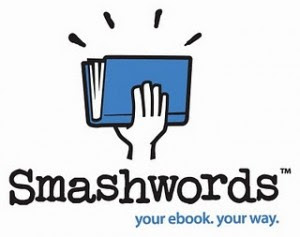It looks like Joe Konrath has returned to blogging. And what a return! He writes:
In the past seven days, on Kindle, I've made about $15k. I currently have two ebooks in the Top 100 Free list--the same ebooks I blogged about two days ago. Dirty Martini and Trapped are #3 and #4, and Tiemcaster will hit Top 100 later today. I also blogged about four other ebooks by my friends Barry Eisler and Blake Crouch. Both of Barry's ebooks hit the Top 100, peaking at #3. One of Blake's did, and it is still #1 in the UK.Here's Joe's Hypothesis: All things being equal, when you're looking for a book "You're going to take what is right in front of you, currently under your nose". He writes:
In the past 60 hours, I've sold 2200 ebooks in the US, and had over 400 borrows.
Why?
I have a hypothesis.
I have no doubt that bestselling authors have a lot of fans. But it's one thing waiting for the next Harry Potter book to come out, and its another seeing the latest Patterson on the new Release table and picking it up because it is there.
I'm not knocking Patterson. The guy is a genius, on several levels. But how many fans have read every Patterson book vs. every Potter book?
Joe Konrath's Secret For Selling $15,000 in 7 days
Joe attributes his huge bump in sales to Amazon KDP Select. He writes:
So what am I doing differently? I have no new releases out. Yes, I self-pubbed my Jack Daniels series for less money than my previous publisher had, but during the first few days those sales were steady, not explosive like they've been.That's quite a bump!
What's changed has been making titles free using the Kindle Select program.
To wit: there are millions of people with Kindles, and the majority of them haven't heard of me, haven't come across my titles, haven't read me before. So by getting three ebooks on the Top 100 Free list, I am making myself known to them.
I am a tasty, free morsel directly under the nose of hungry readers. And they snatch it up.
Not all will read the free ebooks they download. But I still benefit, because the more ebooks I give away, the higher the bounceback will be on the paid bestseller lists. And when I'm on the paid lists, I'll be seen be those who have never seen me before.
Also, I have a hunch some people are reading the freebies immediately. This is why my sales are booming. A rising tide lifts all boats, and some people snatching up the freebies are also buying some of my other ebooks.
Whiskey Sour is #529. Bloody Mary is #411. Rusty Nail is #1121. Afraid is #586. Endurance is #1439.
Last week, most of these were ranked at #10,000 or higher.
Joe Konrath's Tips For Independent Authors
Here's Joe's advise for how indie authors can improve their sales:
1. Publish books with Amazon Publishing. They do a lot to announce their ebooks to readers.Publishing books through Amazon KDP Select can be intimidating! You worry about whether folks will hate your work, whether anyone will download it, whether you'll get horrible reviews. Don't forget, though, you can publish anonymously and, even if the whole thing's a disaster, use your failures to hone your writing and publishing skills.
2. Use KDP Select to make your ebooks free. I suggest using all five days at once. The more ebooks you give away, the higher the bounceback.
3. Have a lot of IPs. The more ebooks you have available, the more virtual shelf space you take up, the likelier it is for a customer to see one of your titles.
4. Cultivate fans. Have a newsletter, a Facebook page, a Twitter account, so people can follow you and get the announcement when you put something new on sale. But remember this will be supplementary, not primary, and no one will follow you if all you're doing is advertising.
5. Announce via third parties. I found BookBub.com to be effective in helping me give away freebies. So is Pixel of Ink.
6. Keep at it until you get lucky.
I can't stress #6 enough. It is easy to get discouraged with promotion, because it may not get the results you seek. You have to have the right book in the right place at the right time, and cross your fingers.
Have you ever published through Amazon KDP Select? If not, has Joe Konrath's experience of making 15 thousand dollars over 7 days through Amazon Select changed your mind about the program?
Other articles you might like:
- Screenwriting Software: Adobe Story- Chuck Wendig's Flash Fiction Challenge: Write What You Know
- Writing A Feel Good Story
Photo credit: "Sloth in the Amazon" by Praziquantel under Creative Commons Attribution 2.0.

















